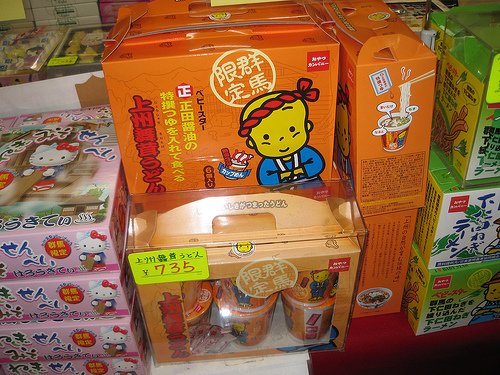One subject of interest in Japan is kokusai kekkon, or international marriage involving a Japanese and a person from another country. The fact that there’s a defined word for this concept indicates that it’s treated as a rather “special” idea, seemingly separate from normal marriage between two Japanese despite its increasing frequency. As Japan’s society progresses, more and more men and women here seem open to the idea of finding spouses from other countries, especially in cities like Tokyo, where the rate of international unions can reach as high as 1 in 10. There are, of course, various hurdles to overcome when choosing to marry someone from another culture, be it Japan or anywhere else: you’ve got language issues, cultural barriers, and many other factors that must be kept in mind. The question of finding someone with compatible values is perhaps the biggest challenge, and keeping an open mind about alternate opinions and ways of doing things is important. An American woman I went to SDSU with married a Japanese man and ended up living very close to me here in Japan (small world). When she got pregnant, she made plans to go back to work soon after having the baby, which isn’t uncommon in the U.S. but is quite rare here, and she was surprised at how strongly her Japanese husband and his family opposed her plan. A male friend of mine from the U.K. married a Japanese girl from Iwate, Japan, far to the North of Tokyo. After their wedding, his bride wanted him to try out the hot springs at the hotel, but he wasn’t too keen on the idea of group bathing with other males (which no one thinks twice about here), and this caused some strain. Of course, there’s no such thing as getting married a “country” — every person is unique, and when you find someone you want to be with, each side must be flexible and open to new ideas.
There’s an interesting show on TV every week that follows the life and times of a married couple, perhaps intended as a subliminal message to single people about the joys of being married in order to boost Japan’s sagging birthrate. Recently they’ve been focusing on couples made up of Japanese husbands and foreign wives, and seeing how they went about their daily lives. One American woman who’d been here for ten years was quite interesting: she’d organized her apartment building into a co-op group so that they could buy food in bulk and save money, which is not something the average Japanese housewife would do. The show followed the couple around, discovering what subtle differences there were in their household compared to a normal Japanese one, how they did the shopping, what kinds of meals the wife prepared, and what friction she experienced with her Japanese husband (she hated his smoking). Language issues were also covered, including one that I could really feel for, how do you make your bilingual kids speak to you in English when they know you understand both languages?
It’s funny how a person’s perceptions work. Growing up in the 1970s, I knew nothing about Japan, except that Japanese people’s lips didn’t sync up with their mouths when they talked (this was due to the English dubbing of Godzilla and Gamera movies I watched). I distinctly remember thinking that Kimba the White Lion (Osamu Tezuka’s Jungle Emperor Leo) must have been produced in Africa, not in Japan, because of copyright issues related to the animals, or something like that. Japanese people form some interesting perceptions about the U.S., too, and I’ve enjoyed learning about these during my time here. Japanese eat white rice with most every meal, and there’s even a word that means “the main course of meat or vegetables that you eat with your rice” (okazu, also used to describe the main course you bring with your bento). The J-List Japanese staff reports that when they were kids, they thought Americans ate bread the same way, taking a plate of rolls or sliced bread with all three meals a day, no matter what you were having. It’s common for famous American professional wrestlers to tour Japan, and J-List’s Tomo says that his first impression of all Americans was based on those big gaijin wrestlers (it made no difference Andre the Giant was from France and Abdullah the Butcher was Canadian). I had a friend who was sure that Sony was an American company because of its English-sounding name, and once a housewife asked me in total seriousness if we had McDonald’s in the USA. As always, it’s fun to compare cultural differences.
J-List is proud to be cosponsoring the upcoming MusicFest 2006 at Fanime Con in San Jose this coming Memorial Day weekend (May 26-29). It’s really a great event: six Japanese indies bands who will be performing on a live stage for fans at the show, several for the first time in the U.S. A once-in-a-lifetime chance to hear some great cutting-edge Japanese music live, a micro-Woodstock for the otaku generation, with all musical genres represented. If you want to hear some great JPOP/JROCK/JRAP, we hope you’ll make it to the show. For information on this great convention, see this page.
















